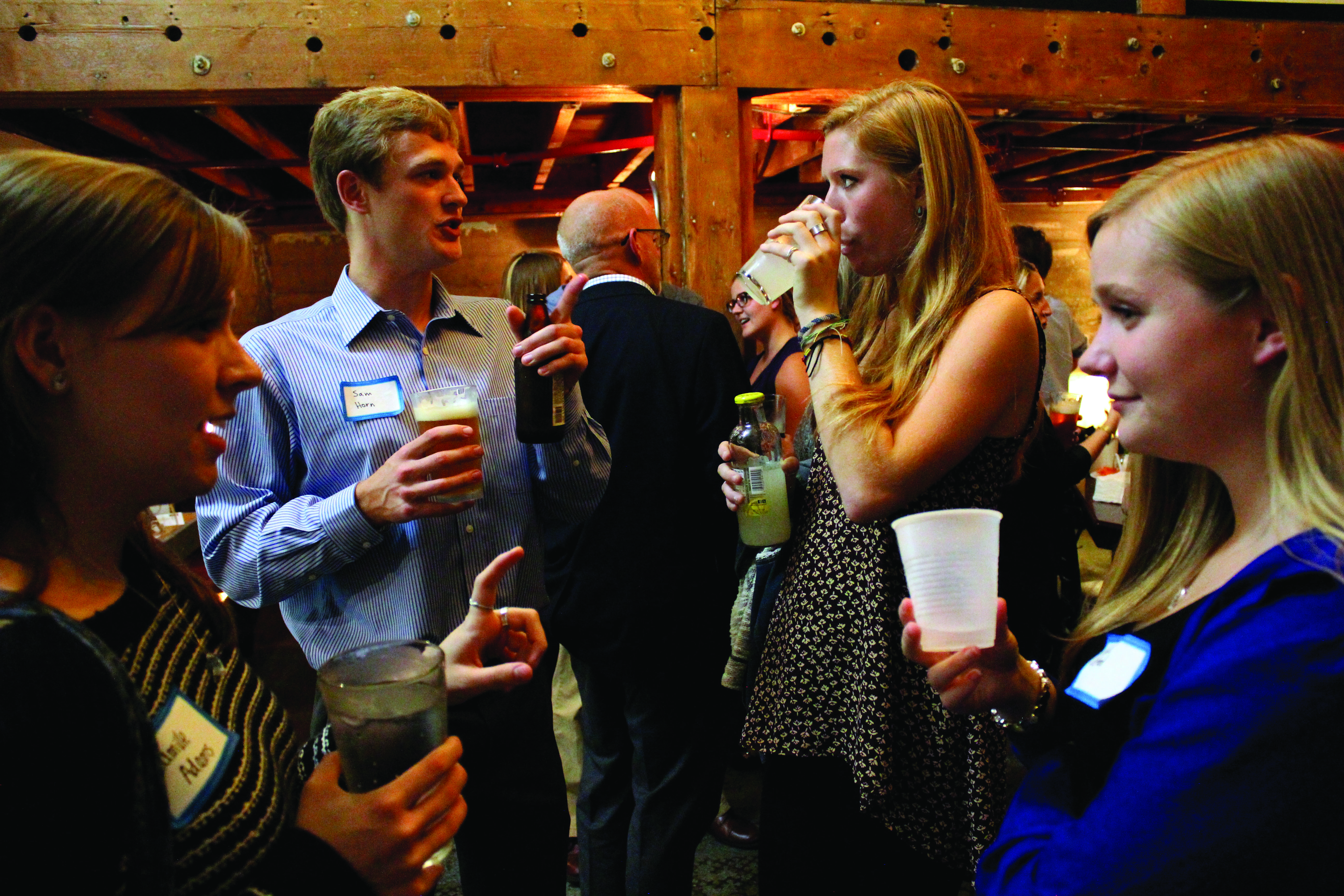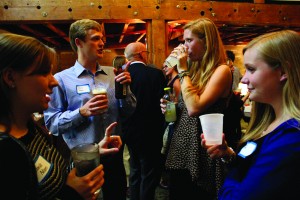

Photo by Elise Anderson
The School of Arts and Communication hosted a party, celebrating the official opening of the Center for Media Studies (CMS) on Thursday, Sept. 18, at B Sharp Coffee House in downtown Tacoma.
Students, alumni, staff and faculty from the communication department, MediaLab and student media networked and caught up with one another, signaling the start of another busy school year.
During the event, MediaLab General Manager Amanda Brasgalla, MediaLab Faculty Adviser Rob Wells and Provost Steven Starkovich shared their ideas and hopes for CMS, which opened this semester in the School of Arts and Communication.
The CMS was created to bring the arts and communication departments, student media and MediaLab together and be a place where students can collaborate on different ideas in journalism, public relations, graphic design, art and theater.
By doing this, CMS will serve to improve the visibility of PLU as a place where media convergence is not just talked about, but practiced daily.
Students will work on projects that are brought to the center from the community. As Communication professor Art Land explained, community members will come pitch their ideas to fellow Communication professor Joanne Lisosky, who then passes on her selections to Wells, who then decides what resources get allocated to this project— whether MediaLab, Graphic Design students, or any combination of the SOAC emphases.
“It’s trying to bridge the campus and the professional world,” Land said. “There’s doing projects for class, which is all well and good, but we all know there’s a different standard and a different expectation level for professional-level projects.”
This new focus may bring about more community-centered work that not only reflects PLU’s mission of serving community, but invites more thoughtful inquiry. Students will take a multidisciplinary approach in their SOAC education which faculty hopes will encourage fantastic results.
Matthew Salzano contributed to this article.



















